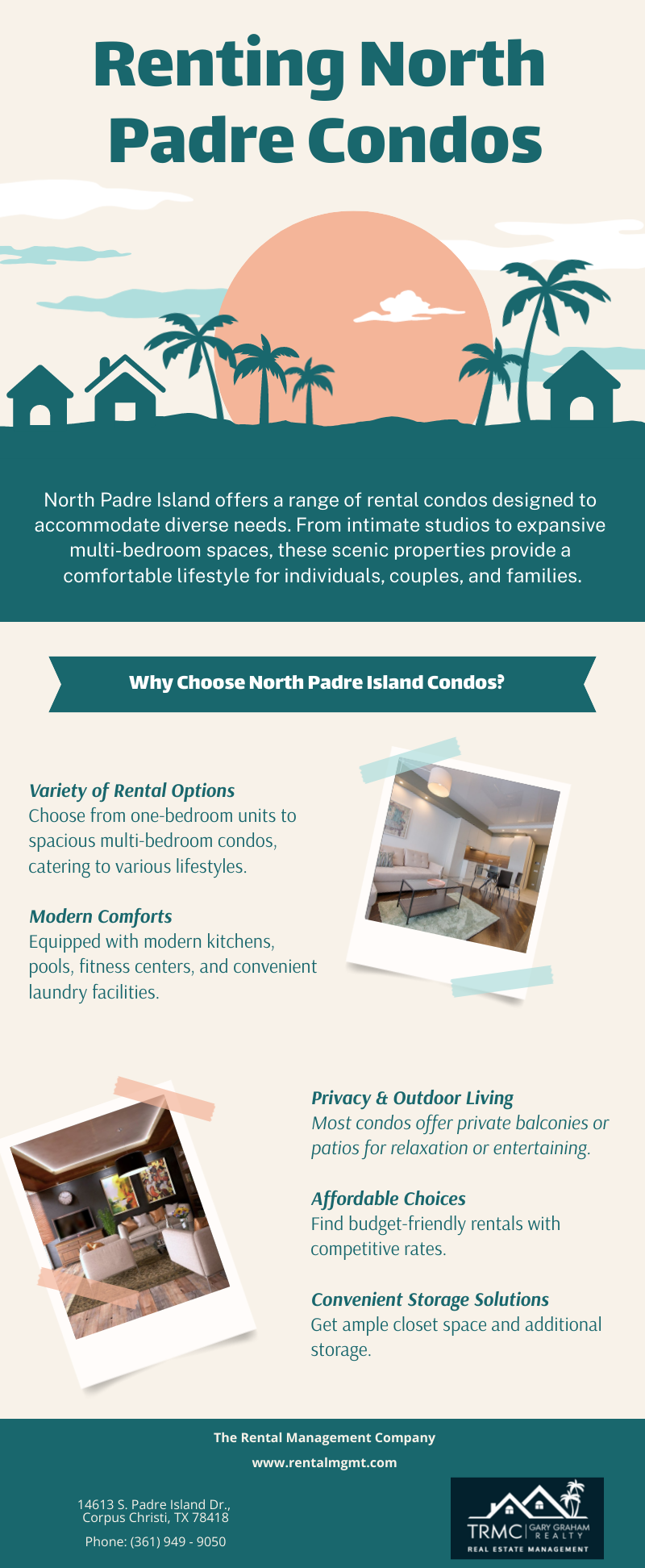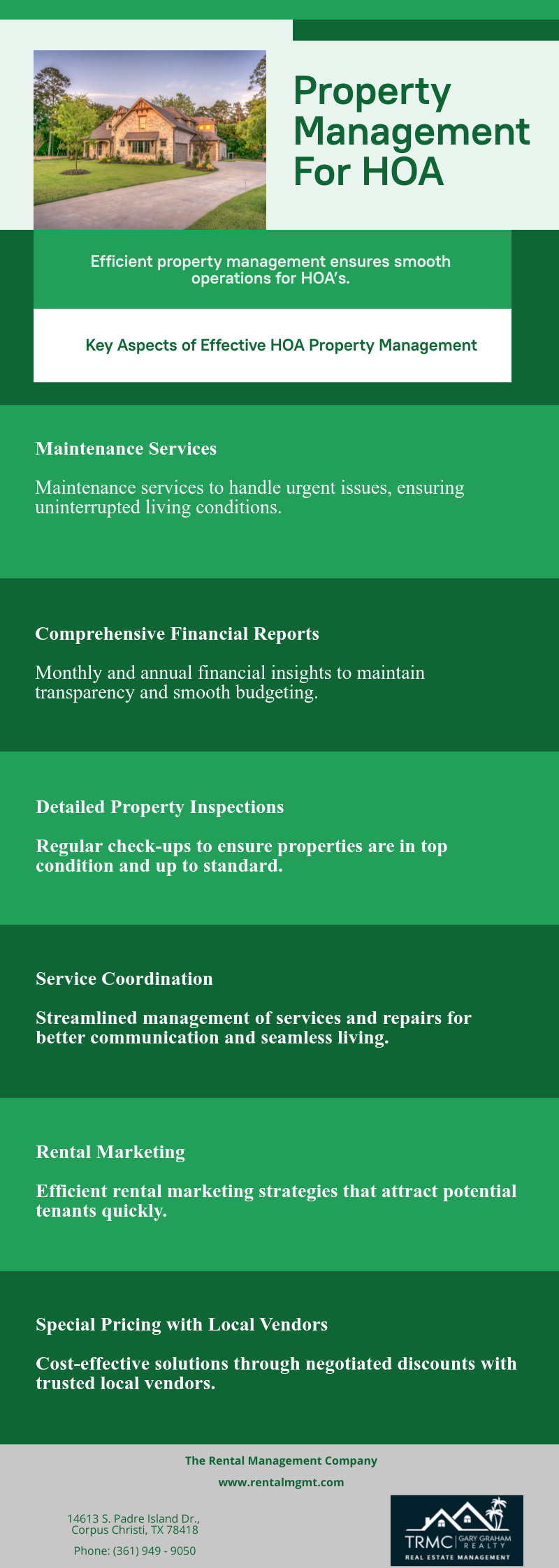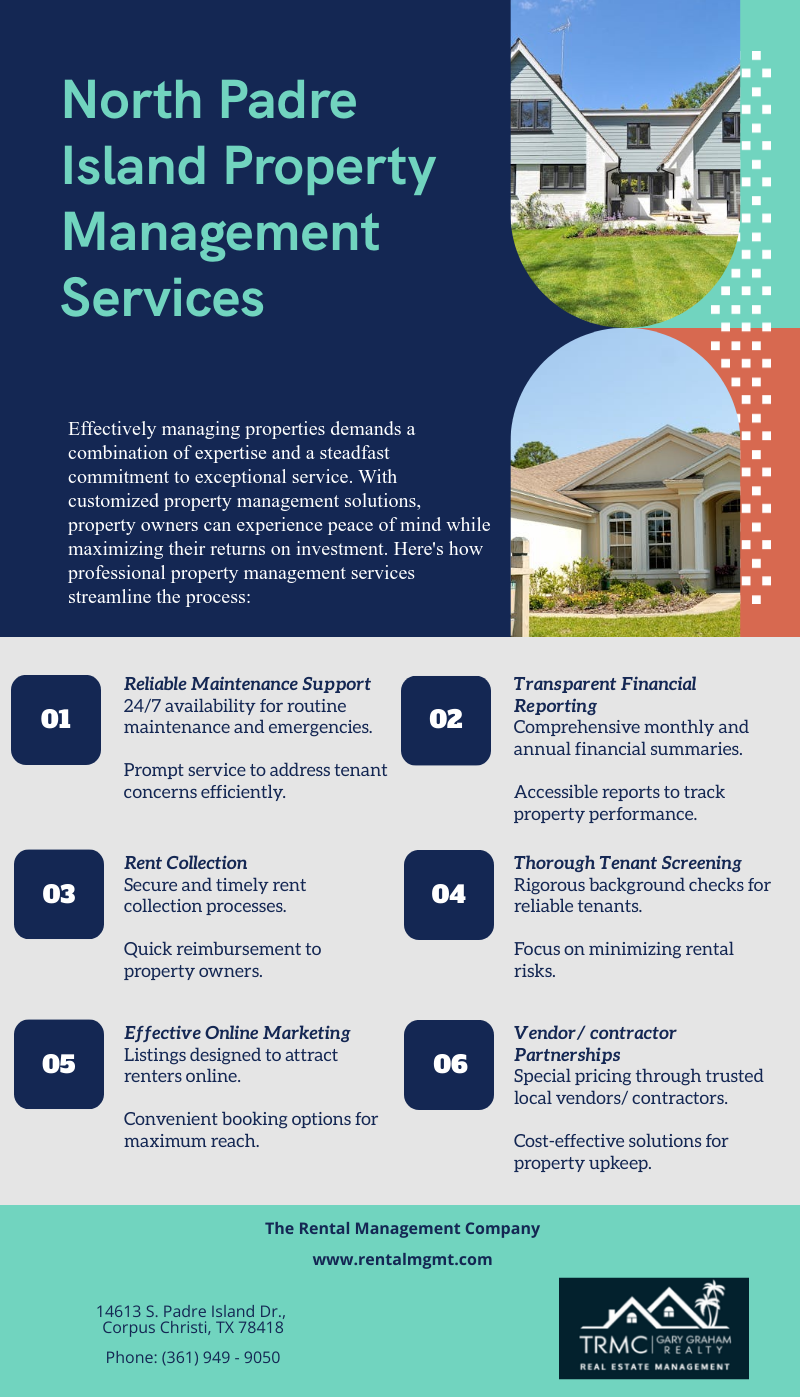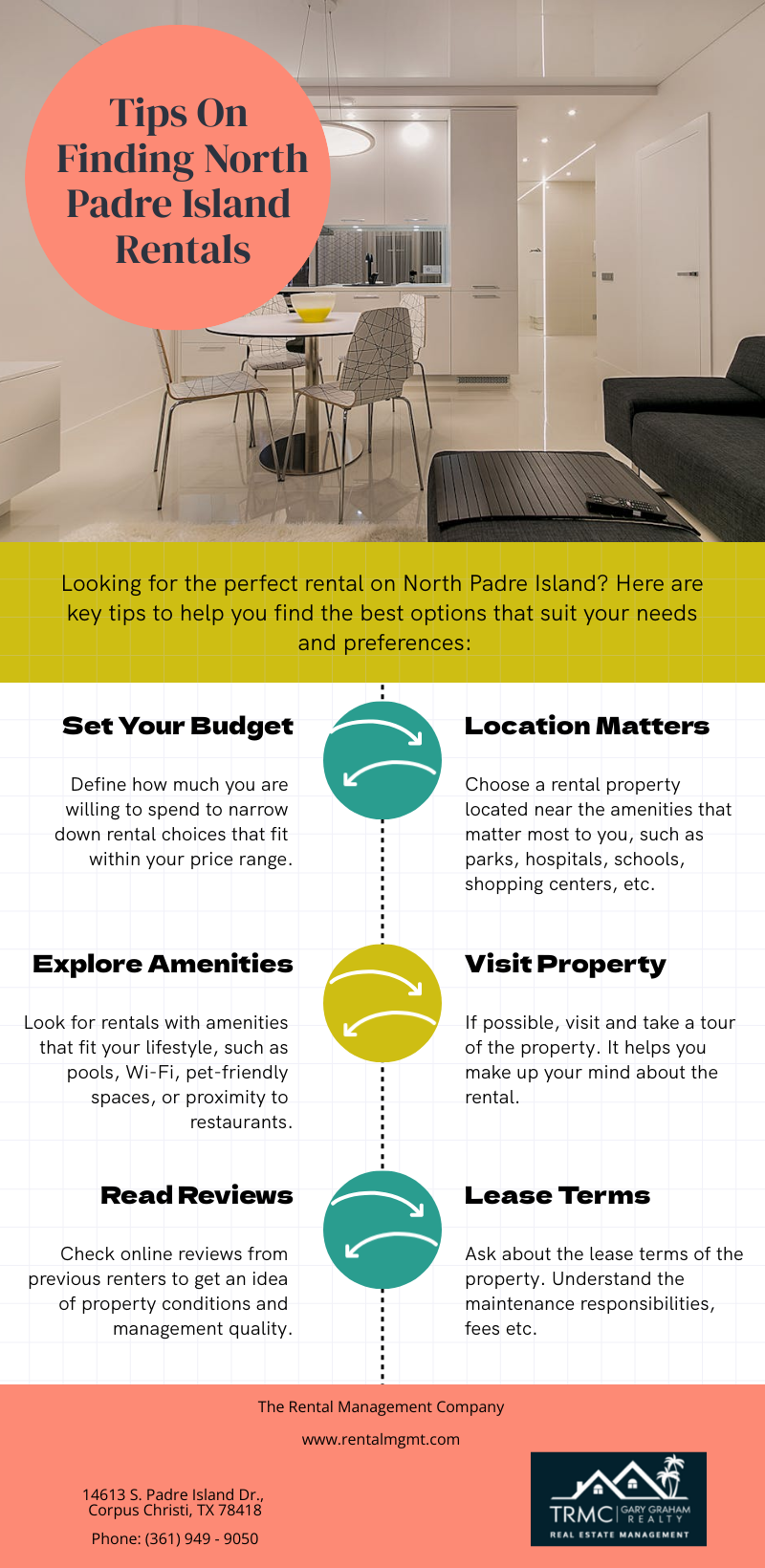Tips for Moving into a Long-Term Rental By North Padre Island Rentals Management Agency
Long-term rentals provide individuals with the convenience of accommodation suited to their needs without the long-term commitment associated with homeownership. Whether motivated by career prospects, lifestyle changes, or other factors, moving into a long-term rental requires careful consideration and planning to ensure a smooth transition and enjoyable living experience.
If you are planning to move into a long-term rental, the following are some tips:
Setting a Budget
Before you begin your search for a long-term rental, it is important to determine how much you can comfortably afford to spend on rent each month. Consider your monthly income, expenses, and any other financial considerations to establish a realistic budget.
Research Neighborhoods
Explore different neighborhoods in your desired location to find one that aligns with your lifestyle and preferences. Consider factors such as safety, proximity to amenities like grocery stores and schools, access to public transportation, and overall atmosphere.
Make a List of Must-Have Amenities
Identify the amenities and features that are essential for your comfort and convenience, such as parking facilities, laundry options, pet policies, and proximity to parks or recreational areas. Prioritize these factors to narrow down your search and focus on properties that meet your needs.
Schedule Viewings
Once you have identified potential rental properties, schedule viewings to see them in person. Take the time to thoroughly inspect each property, paying attention to details like the condition of the space, cleanliness, and any signs of damage or maintenance issues.
Read The Lease Carefully
Before signing any rental agreements, carefully review the terms and conditions outlined in the lease. Pay close attention to clauses regarding rent payments, security deposits, maintenance responsibilities, and any restrictions or rules set by the property owner or property management.
Consider Additional Costs
In addition to monthly rent payments, budget for additional expenses associated with moving into a new rental property. This may include security deposits, utility fees, moving costs, renter's insurance, and any other upfront expenses.
Notify Utilities and Change Your Address
Before moving into your new rental property, contact utility companies to arrange for services such as electricity, water, gas, internet, and cable to be transferred or set up in your name. Additionally, update your mailing address with relevant parties, such as banks, employers, and subscription services.
By carefully considering factors such as budget, location, amenities, and lease terms, individuals can navigate the rental process with greater ease and confidence. Whether moving for work, lifestyle changes, or other reasons, thorough preparation and attention to detail can help ensure a positive experience in your new rental home.
To know more about long-term rentals near you, visit The Rental Management Company at 14613 S. Padre Island Dr., Corpus Christi, TX 78418, or call 361-949-9050. You can also browse the services offered at
www.rentalmgmt.com and connect on Facebook and Instagram.
CONTACT
http://www.rentalmgmt.com/app/public/uploads//2549_agency-disclosure.pdf
http://www.rentalmgmt.com/app/public/uploads//2549_agency-disclosure.pdf
http://www.rentalmgmt.com/app/public/uploads//2549_agency-disclosure.pdf
Texas law requires all license holders to provide Information About Brokerage Services and the Consumer Protection Notice to all potential clients.






